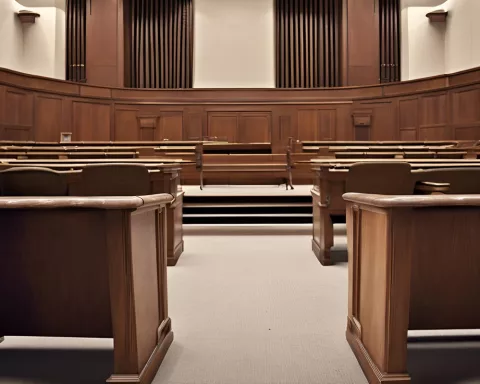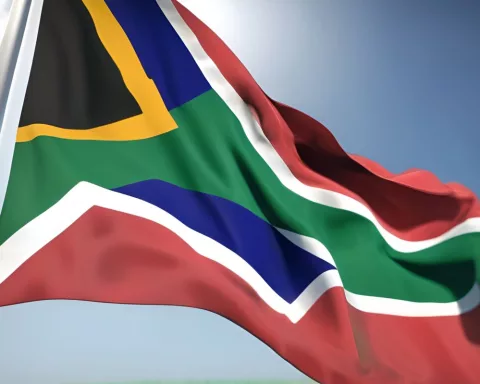This week in Parliament is buzzing with important talks about education and healthcare. Ministers are diving into big issues like financial aid for students and health insurance for everyone. They’re also visiting schools and communities to make sure the government is doing its job well. With so many discussions and visits planned, everyone in Parliament is focused on making life better for the people they serve. It’s a busy week, full of energy and purpose!
What are the key activities happening in Parliament this week?
This week in Parliament features crucial discussions on social services, including education and healthcare, oversight visits to ensure government accountability, and committee meetings focused on governance and justice. Key ministers will address urgent issues, promoting transparency and addressing societal challenges.
The corridors of Parliament are abuzz with renewed energy this week as both the National Assembly (NA) and the National Council of Provinces (NCOP) reconvene following a constituency break. Entering the third and final term of the year, the agenda is brimming with crucial oversight visits and vibrant discussions. Delegates from the NCOP are poised to present oral questions that promise to ignite significant political dialogue. The assembly of key ministers from diverse sectors signals the weighty discourse anticipated in the coming days.
Social Services Under the Microscope
Tuesday marks the start of an intense focus on social services, beginning with Cluster 2A, which encompasses the Ministers of Basic and Higher Education. These ministers are set to tackle urgent issues affecting education, such as the stabilization of the National Student Financial Aid Scheme (NSFAS) and the challenges facing Technical and Vocational Education and Training (TVET) Colleges. The impact of budget cuts looms large, threatening teacher contracts and educational quality, making these discussions timely and critical.
As the week progresses, attention shifts to Cluster 2B on Wednesday, featuring the Minister of Health and the Minister of Social Development. The agenda here includes evaluating the progress of the National Health Insurance (NHI) scheme, a transformative healthcare reform aimed at universal health coverage. This initiative mirrors historical aspirations for equitable healthcare systems, akin to the post-war welfare models seen in Europe. Additionally, efforts to combat poverty will form a pivotal part of the discussions, highlighting the intersection of health and social well-being.
Thursday brings Cluster 2C into the spotlight. The Minister of Social Services and the Minister of Water and Sanitation will engage NCOP delegates on topics like abandoned housing projects and water pollution. These issues not only reflect immediate societal concerns but also echo the broader environmental justice movements of the late 20th century, which underscored the interconnectedness of ecological and social systems.
Oversight Visits: A Commitment to Transparency
While critical discussions unfold within the chambers of Parliament, the week also sees several NA committees embarking on oversight visits across the country. These visits represent the constitutional mandate to scrutinize government actions and ensure transparency. For instance, the Portfolio Committee on Basic Education will visit schools in the Northern and Western Cape, focusing on infrastructure and educational standards. Such visits play a crucial role in maintaining accountability, aligning with the democratic governance principles enshrined in historical charters and declarations.
The Standing Committee on Public Accounts (SCOPA) sets its sights on Eskom and the Passenger Rail Agency of South Africa (PRASA). By focusing on energy and transportation, these visits highlight sectors critical to economic growth and social stability. The importance of efficient resource management harkens back to the industrial advancements of the 19th century, which reshaped economies through innovation.
Another oversight initiative involves the Portfolio Committee on Cooperative Governance and Traditional Affairs, which will assess municipalities in KwaZulu-Natal. This evaluation will delve into matters of governance, water access, and service delivery challenges. The discussions hold significance for improving local governance and residents’ quality of life, drawing parallels to the municipal reforms of the Progressive Era aimed at curbing corruption and enhancing public services.
Committee Meetings: Deliberating on Governance and Justice
In addition to oversight visits, the week is punctuated by a series of committee meetings that address various facets of government operations. On Tuesday, the Portfolio Committee on Defence and Military Veterans will receive a briefing from the Auditor-General on financial and non-financial performance. This session underscores the ongoing need for fiscal responsibility and strategic resource allocation in maintaining national security, a concern that has influenced political agendas since the Cold War era.
Simultaneously, the Portfolio Committee on Justice and Constitutional Development will delve into the annual financial statements and reports. Emphasizing the judiciary’s role in safeguarding democratic principles and ensuring justice, these discussions reflect the enduring balance between power and justice that has been a theme in political discourse from the Magna Carta to contemporary constitutional frameworks.
Wednesday’s agenda brings a briefing from the Department of Higher Education and Training (DHET) and the Services Sector Education and Training Authority (SETA). These discussions will concentrate on annual reports and audit outcomes, with a focus on educational quality and vocational training. The vital role of education in societal advancement resonates with Renaissance ideals of enlightenment and intellectual growth.
Focus on Higher Education and Justice
Thursday continues the exploration of higher education with briefings from the Quality Council for Trades and Occupations (QCTO) and the Council on Higher Education (CHE). Debates are expected on topics like the remuneration of university executives, raising questions about equity and meritocracy within educational institutions. These issues mirror broader societal debates on fairness and opportunity, echoing the egalitarian principles championed during the Enlightenment.
The week culminates on Friday with briefings from the National Prosecuting Authority and the Northern Cape Urban TVET. These sessions highlight ongoing efforts to enhance judicial efficiency and educational outcomes, essential components of social progress and stability. Historically, the interplay between education and justice has been pivotal in shaping societies, from Athenian democracy to modern democratic states.
In summary, this dynamic week in Parliament exemplifies a nation keenly engaging with its core challenges and opportunities. The combination of oversight visits and committee meetings ensures that critical issues remain at the forefront of political discourse, fostering transparency and accountability. Through these activities, Parliament fulfills its constitutional duties, paving the way for informed decision-making and responsive governance.
FAQ
What key topics are being discussed in Parliament this week?
This week, Parliament is focusing on critical issues related to education and healthcare, including financial aid for students and the National Health Insurance (NHI) scheme. Ministers will also address broader social services challenges, ensuring accountability and governance.
What is the significance of the oversight visits taking place this week?
The oversight visits are essential for maintaining governmental transparency and accountability. They are designed to scrutinize government actions in various sectors, such as education and public services, ensuring that the commitments made by the government are being met effectively.
How are education issues being addressed in Parliament this week?
Education discussions will begin with the Ministers of Basic and Higher Education focusing on the National Student Financial Aid Scheme (NSFAS) and challenges faced by Technical and Vocational Education and Training (TVET) Colleges. These discussions are critical given the potential impact of budget cuts on educational quality and teacher contracts.
What discussions are planned regarding healthcare this week?
On Wednesday, the Minister of Health will evaluate the progress of the National Health Insurance (NHI) scheme, which aims for universal health coverage. Additionally, there will be talks about poverty alleviation, highlighting the intersection of health and social well-being.
What committees are meeting this week, and what are their focuses?
Various committee meetings are scheduled, including discussions on defense, justice, and higher education. These meetings will cover topics such as financial performance in defense, the judiciary’s role in democracy, and vocational training outcomes, ensuring a comprehensive review of government operations.
How does this week’s agenda reflect historical themes in governance and justice?
The current discussions echo historical themes such as the balance between power and justice, fiscal responsibility, and the role of education in societal advancement. These themes have been pivotal throughout history, drawing parallels to significant democratic principles and reforms from the Magna Carta to modern governance practices.












